Can You Set Lenten Goals? (You bet.)
Fat Tuesday. Mardi Gras. The last day to consume all the booze, beads, sugar, sex—whatever—in preparation for a forty day fast. (This is my Louisiana blood talking.) This binge before the purge is, of course, not the most spiritually actualized approach to the final day of Ordinary Time. Still, human as we are, a good lot of us will go out with a consumptive bang, an experience of the grand Whizz Bang you’ve all come to know and love.
This year, I have decided to take a bit of a different course. Instead of binging, I’m preparing. I’ve spent the morning outlining a path of growth toward grace. And no, that does not simply mean setting a bunch of spiritual growth goals, though there are a few of those. Instead, it means living into the grace of my own “human merely being,” as E.E. Cummings wrote. How? Consider a short list.
The Purge. As I wrote yesterday, I’m fasting from Twitter and Facebook (save and except to promote “A Drink with a Friend,” the podcast I cohost with Tsh Oxenreider). A less digital life leads to a more human one.
The Prayer. I’m learning to pray the Liturgy of the Hours, beginning with morning and evening prayers. This way of praying has been a staple of Christian devotion for round about 1,500 years. If the monks, priests, and great saints of history have benefited from it, surely I can too. (For more on the Liturgy of the Hours, go here.)
The Project. I’m finishing a writing project. My novel, Bears in the Yard, has been lying dormant for almost 8 years. It’s time to finish it up. (If you want to read the installments, join the paying subscribers on my Substack channel. I think you’ll enjoy it.)
The Poetry. I’m digging deeper into the work of the great poet, T.S. Eliot. Through it, I hope to get a sense of his own human experience, the way he balanced the spiritual and the physical.
It’s a modest list. I’m subtracting some things, adding others. Through it, I’m hoping to experience my humanity a little more in this Lenten season. And as the great day of Easter dawns, I hope to better understand the necessity of the redemption of the body, of all things.
It’s Fat Tuesday. Mardi Gras. Go ahead and engage your large appetites if you must. But before you do, ask yourself: How will I approach this Lenten season? Then, chart a course.
The Quieter Spaces (Lent 2021 Preview)
I write about many things: sobriety; spirituality; life examination; a layman’s take on politics; photography; the craft of writing. If you’ve been following my writing over the years, you’ve suffered my eclectic bag of words. Thank you.
We’re moving into Lent, a season in which I’m bound to write about silent spirituality and the search for quiet wisdom. That is, after all, what Lent has come to mean to me. It is a time to reflect on my own brashness, my penchant toward noise, my duplicity (which is nothing more than a fancy way for noting my own hypocrisy).
Beginning on Ash Wednesday, I’ll stretch into the quiet examination of Lent. I’m marking the season with a 40 day fast from Twitter and Facebook. I’ll be turning my digital energy back here, a place I’ve neglected too long. Consider joining me in the fast. Consider joining me on the journey, too. Let’s see what we’ll find in the quieter spaces. And if you need a guide this Lenten season, might I suggest grabbing a copy of The Book of Waking Up: Experiencing the Divine Love that Reorders a Life? There is something discretely Lenten in those pages, something that might guide you from any old addiction and toward true sobriety.
The End of Insanity? From One President to the Next.
January 20, 2021. It’s a new day.
I watched as the former president left the White House and made his way to a send off ceremony at Joint Base Andrews featuring Journey’s song “Don’t Stop Believing”, a thin military band rendition of “Hail to the Chief”, and an extravagant 21-gun salute. I listened to his remarks, a recasting of Trump’s Greatest Hits. I watched as he climbed the stairs to Airforce One for the last time and waived goodbye.
Then, I took a deep breath.
I have not hidden my feelings about President Trump. I shared my thoughts here, on social media, and locally, and those thoughts were as follows: Some modicum of character, integrity, and humility matter in the office of the presidency. And as I saw it, this made President Trump uniquely unqualified. And now, five years later, we’ve seen the fallout. Were there some successes by this President along the way? Yes. To say otherwise would be intellectually dishonest. Were those successes worth the division, the rancor, the violence? Some say yes. I pray for those people, just as I’ll continue to pray for the man they call their ideological leader.
Today, we welcome a new President, President Joseph Biden. Do I think the age of insanity is over? No. But I have hope that a good man and a handful of good men and women in Congress, Democrat and Republican alike, can lay the groundwork for unity. I hope those who continue pushing violence as the means to a political end are marginalized, silenced, and castigated. Get them out of government so, as Carl Sandburg wrote, the people who have been “tricked and sold and again sold,” can “go back to the nourishing earth for rootholds.”
There will still be raucous debate in these here United States in the days to come. There always has been. Still, we belong to each other. I hope we learn to remember that. And I hope we find our rootholds.
The 2020 Good Stuff List
Yesterday, I shared a certainty: the dawn of 2021 will not erase the pall of 2020. It’s a sentiment that may ring hopeless, until you remember that good, beautiful, and true things often cut through the clouds of 2020. And so, I invited you to create a Good Stuff list. Did you?
Today, I’m sharing my Good Stuff list, a recounting of the events, art, people, and places that made 2020 worth remembering.
The Good Stuff
1. I released my latest book, The Book of Waking Up: Experiencing the Divine Love That Reorders a Life. It’s a book about the concept of “inner sobriety,” and I painstakingly wrote over the course of three years. If you haven’t read it yet, it’d be a great way to kick off your 2021.
2. 21 years of marriage with Amber. She is my favorite.
3. My family was confirmed into the Catholic Church in the middle of COVID. As I wrote for America Magazine, it was preceded by a long season of uncertain. And when we were confirmed, there no Easter-Vigil fanfare. instead, it was a quieter entrance, with only 50 people in attendance. Small as it was, it felt right, maybe something like home.
4. I started podcasting with Tsh Oxenreider about sacramentality in everyday experience. I’ve resisted podcasting because I didn’t want to create content for the sake of creating content. This is the project that converted me. And I’ve loved every minute of it.
5. I read an amazing novel by David Mitchell, The Thousand Autumns of Jacob de Zoet.
6. I read this poem by John Blase: “Solstice 2020.”
7. The food at Atlas in Fayetteville, Arkansas.
8. Amber knitted a whiskey-colored winter hat.
9. One son learned to dunk. One son found ways to make his own money. One son began a research project on what science fiction novels teach us about humanity. One son—the youngest—began reading Jurassic Park.
10. love photography, and in January, I connected with Julie and Chad Cannon for a skinny minute. Julie documents her life with the Fujifilm X-T3, and she let me test drive it. I didn’t do the work to frame up a good shot, but I fell in love with that camera. It’s well designed, optically amazing, and the camera on sell-a-kidney-and-use-the-cash-to-buy-this list.
11. I took some a number of photos. Some I love. Some I hate. All were a thrill.
12. I learned to bake all manner of bread, and though we’ve bought a loaf or two along the way, it’s been mostly homemade since March.
13. I discovered I’ll be writing a book with Amber. Stay tuned.
14. The Expanse, Season 5.
15. The poetry of William Stafford.
16. The writing of Claire Messud.
17. The treasury of the Catechism.
18. The flash of the trout under the water.
19. The boy with the fly rod, making magic.
20. The farm with friends.
This was the list I wrote in less than thirty minutes. There are more, of course, but this is a pretty beautiful start.
What about you? What’s on your Good Stuff List for 2020? If you’re feeling bold, email your list to me. I’d love to read it.
A 2021 Prediction: The Coming Chaos and an Antidote for it.
Recap: a new, more virulent strain of coronavirus is burning through Brits; COVID cases in the United States are expanding by the day; government and corporate servers in the United States were hacked by some foreign entity; the allegations of voter fraud have led a former (and pardoned general) to toss around the idea of implementing martial law; and, the tax relief bill includes a “three martini lunch” provision for corporate executives. And this is just the news from the last five days.
We seem to live under a magical assumption. The ball will drop, closing out 2020. We’ll sing “Auld Lang Syne,” kiss our significant others, and hit the hay. And when the sun greets us on January 1, 2021, the chaos of 2020 will be in the rear view mirror. But this is not the way time, nor viruses, nor hackers, nor politicians, nor lobbyists work. These are the propagators of the churn, the scorch and burn for the sake of profit. They are the propagators of volatility, uncertainty, chaos, and ambiguity since Adam ate the apple, though the modes of technology and the means of attack were different. (Recall the bubonic plague, the knife of Brutus, the Trojan horse?)
I am aware these are not uplifting thoughts, but they are sober. So as we enter 2021, I’m asking you pause. To steal yourself for more of the same. To prepare your heart and mind to approach the new challenges of a new year with toughness, sobriety, and joy. How?
Carve out some time today, and reflect on 2020. Don’t just wallow in the sorrow of a year gone sour. Instead, consider the good stuff, the stuff the fire didn’t touch. Create a sort of good-stuff list, then reflect on it. Share it with you spouse, your friend, whomever. Invite them to create their own.
Train your eyes to see the goodness and beauty of the world around you, even when everything is burning. That kind of training might just get you through another year of chaos.
Come back tomorrow, when I’ll be sharing my own Good-Stuff List.
DON’T GO JUST YET
Have you lived a sober 2020? Chances are, you’ve found yourself more prone to addiction than ever. (The stats say as much.) There’s hope, though. Pick up The Book of Waking Up, and walk into a new year of true, inner sobriety.
Five Photos Proving Beauty is Bigger Than #2020
In the waning weeks of 2020, the Great White North came to visit. In my almost-southern hometown, the magnolias and bamboo bowed low, showing deference to the weight of a year. 2020: It’s been heavy.
Before the snow came, I sat in our local adoration chapel, a thin place in this world where the silence speaks. There, I reviewed the year—COVID-19; the George Floyd protests; the presidency that will not end. I offered a few prayers for peace and resolution, and as I did, other things came to mind. The grace of confirmation. The trout stream. The beauty of Amber’s tiny garden. The Farm. The anniversary. The exquisite food. There’s been enough grace to go around.
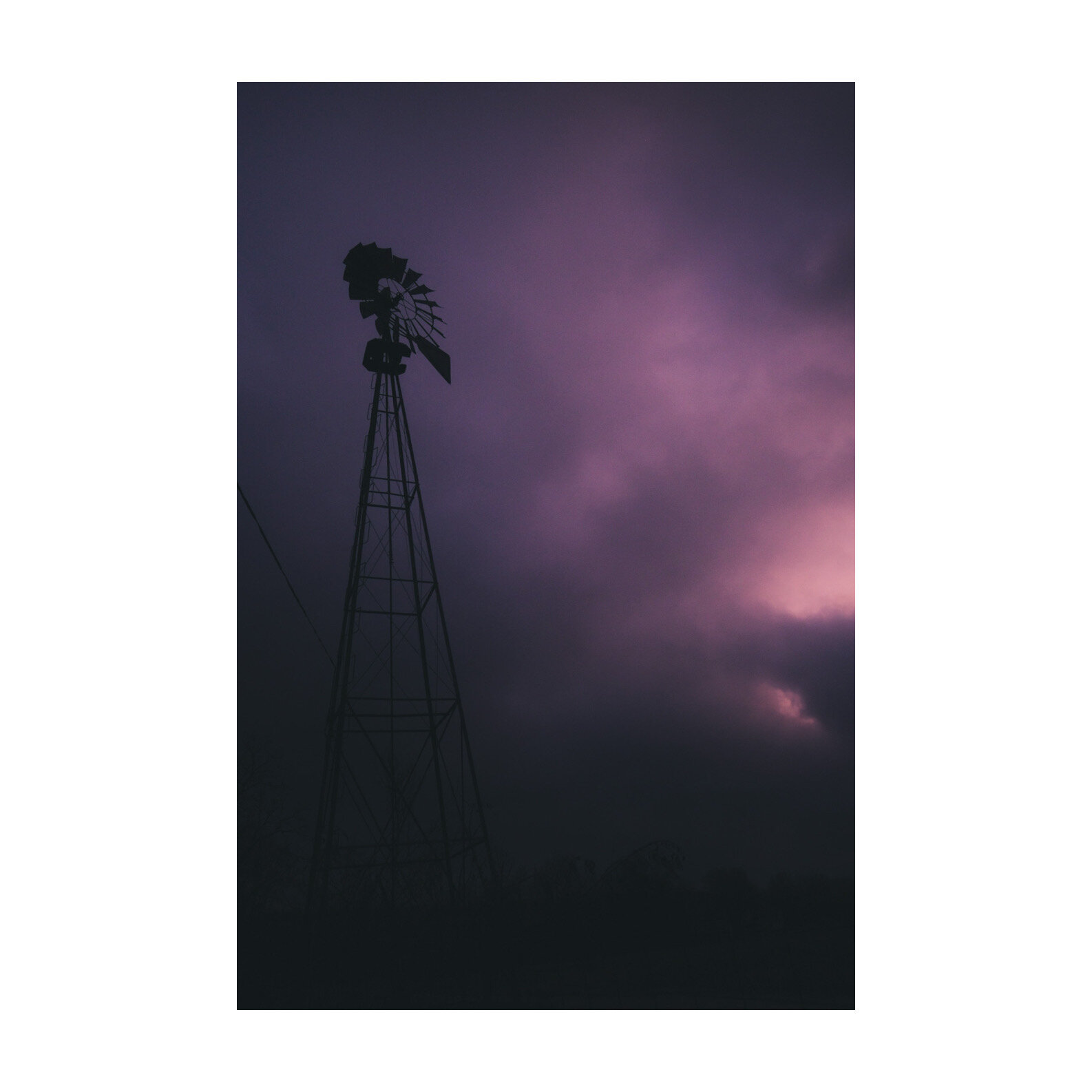
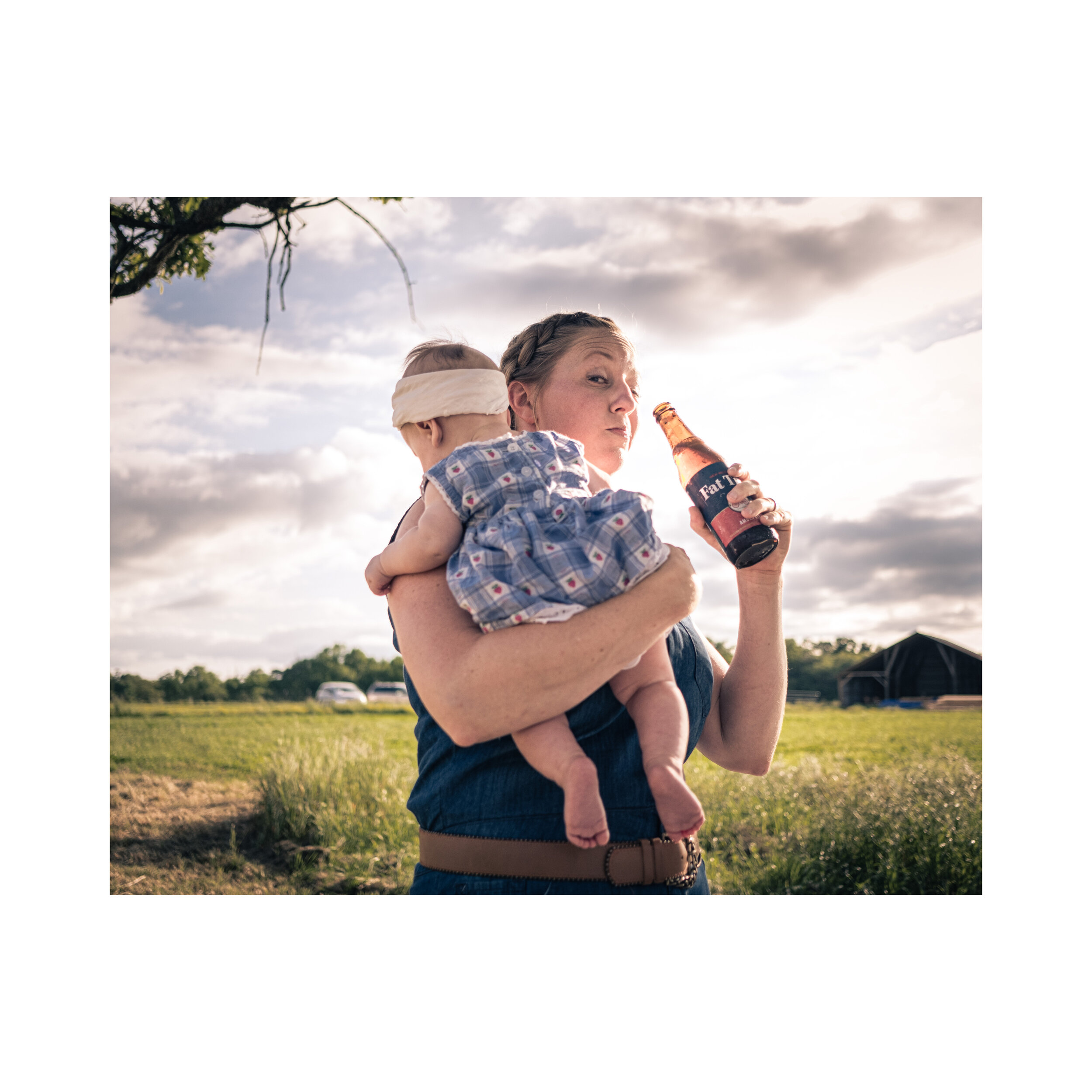
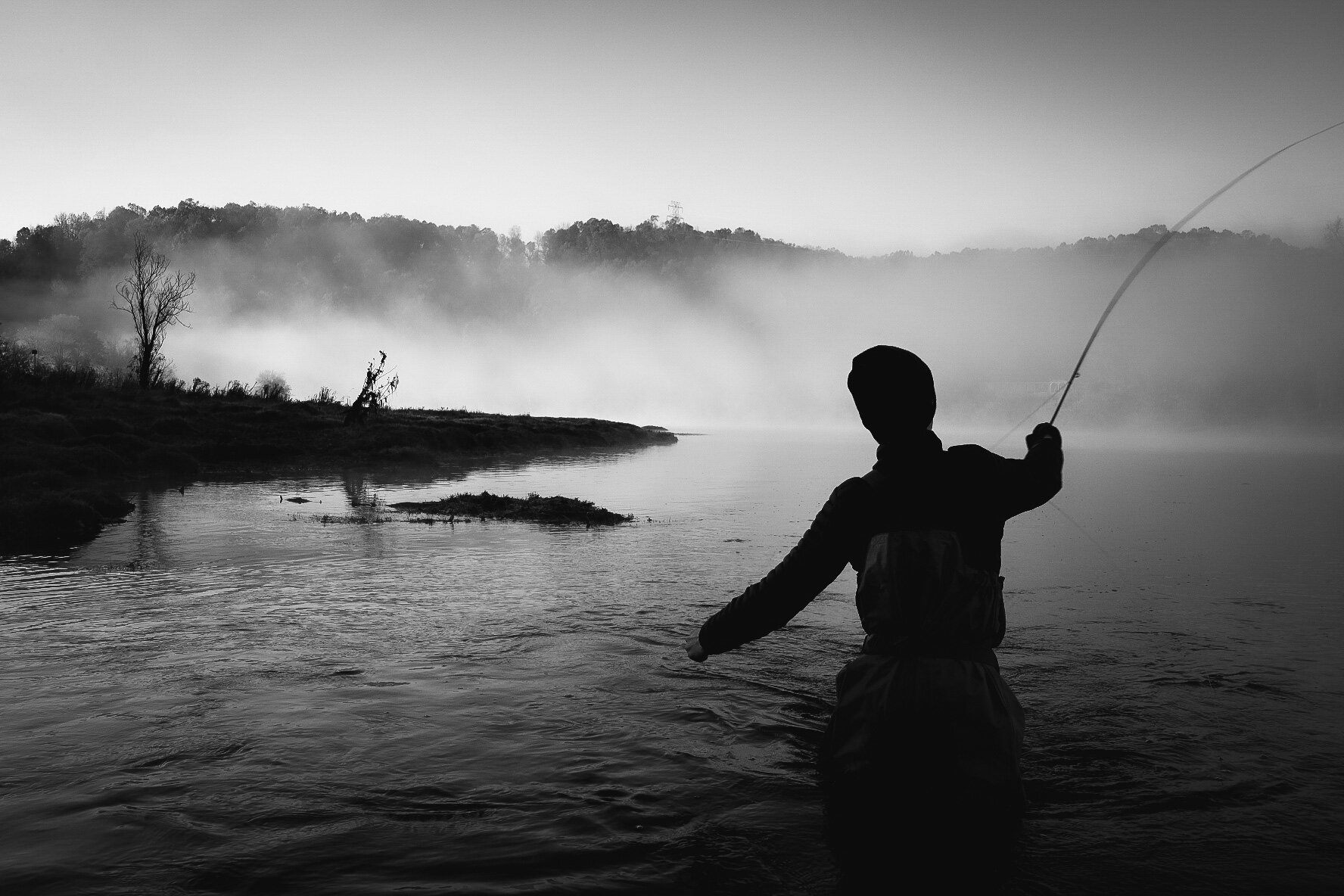
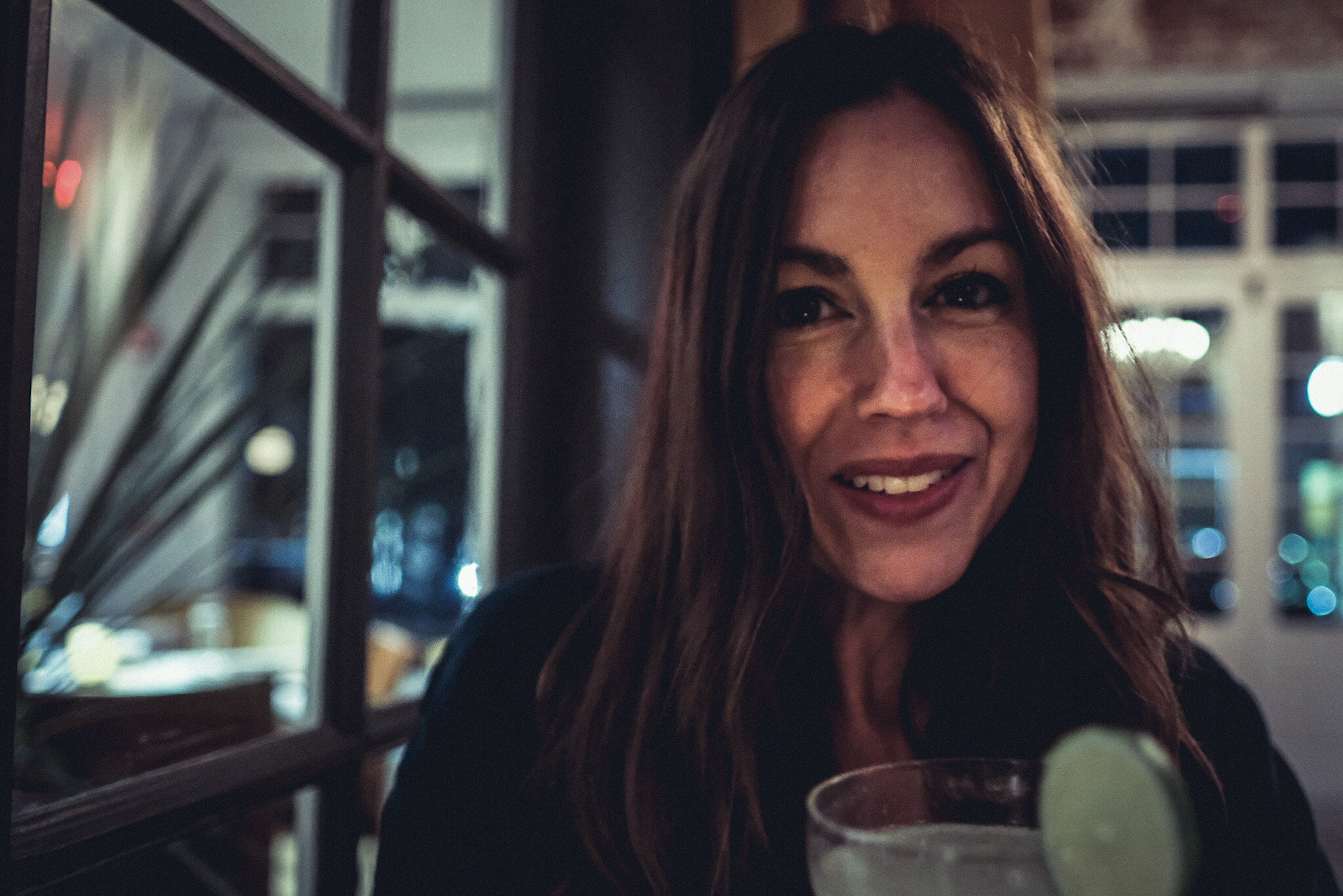
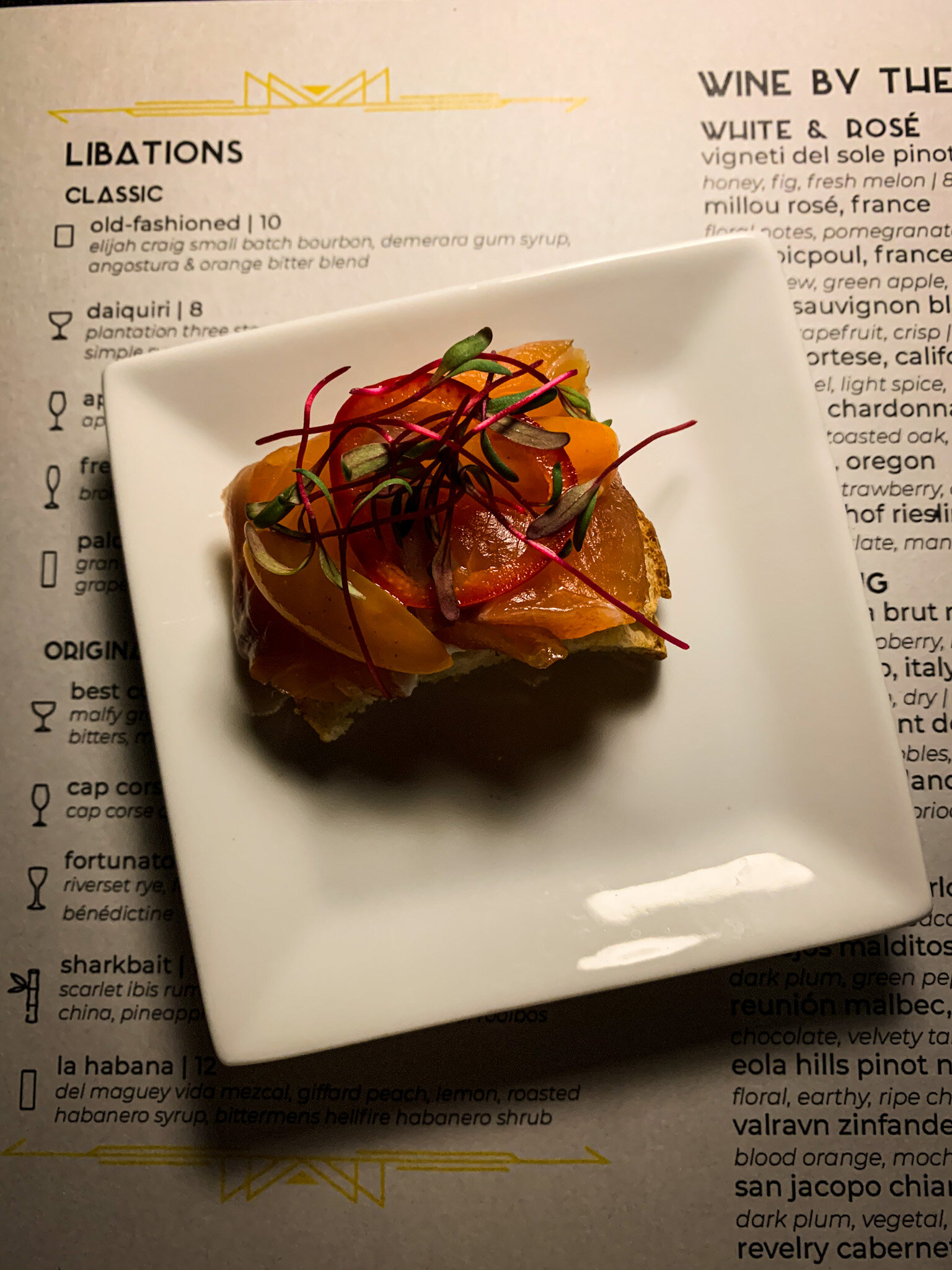
There is a temptation to treat 2020 as its own sort of hashtag, a meme of all things negative. This, I perceive, gives the darkness too much weight. We are not bamboo. The world is not snow. Beautiful things are bigger when given their proper place.
What good have you seen in 2020? Reflect on it. Steep yourself in it. There is more beauty than horror in this human life, if only we’ll slow down long enough to see it.
Recording Your Advent (A sort of Holiday Examen)
I have written two spiritual books—a memoir about booze and finding God and a work of nonfiction about detachment from the stuff of earth and attachment to the Divine. I worked those words out in quiet, creative spaces, spaces where I did my best to silence the noise of the world and wake to music that is both human and Divine. I tried to translate that music, put it to words. And truth be told, that’s why I keep coming to the page. I believe the dance between the human and the Divine ought to be recorded. At least, as best as we can.
It’s Advent, the season of waiting and waking. As I wrote on Monday, ”Advent… is a time of preparation, reflection, and setting our hearts on the Magi's journey.” And so, I’m working out my own reflections in a quiet journal, one I won’t share here. Could there be a better practice of preparation and reflection than recording my honest reflections about life, faith, and the Advent season in which I am waiting for 2020 to be over?
Here’s the truth: I’d rather not do this alone. So, I’m inviting you to keep your own Advent journal. From now till Christmas Eve, carve out a little time each day and examine your day, your human dance with the divine. And if you want some tips on how to start, consider asking these four questions:
When did I feel most human, most alive today ?
When did I experience the presence of the numinous, the Divine?
Where did I fail to act with compassion, peace, or justice today?
How can I resolve to be more present to myself, the Divine, and others tomorrow?
Take some time for honest reflection at the end of each day. Keep your reflections in a particular journal, a Word document, or on Google Docs. And don’t be afraid to be creative. After all, we’ve been created to be creative. For bonus points, invite a friend to join the experience with you (simply change the email address in this form). What will you find? I don’t know. But don’t be surprised if it doesn’t draw you deeper into both the humanity and divinity of the Advent season.
Come Advent With Me (With Four Adventish Resources)
We’ve entered yet another Advent, a time to prepare for the contrast of coming light against the shadows of the world. This year is perhaps the shadowiest year of my four decades of living, and it begs for the coming of the Christmas light, which is to say, it begs for Advent.
Advent—the 26 days preceding Christmas—is a time of preparation, reflection, and setting our hearts on the Magi's journey. It's a time to wake from the things that lull you to sleep, to open your eyes to the sun rising in the east. But what if you’ve never observed these contrasting days, the days of anticipation? Where do you start?
Last night, a friend who is new to the liturgical calendar (the calendar governing the church year) asked, "How do I Advent?" A proper verb use of the noun because Advent is a thing we engage. I am no Advent expert, but I am a practitioner. So, if you’d like to learn how to Advent (or deepen your Advent devotion), consider these resources.
An Advent Podcast: Tsh Oxenreider and I recorded a podcast entitled "A drink with a friend," in which we discuss Advent and the liturgical calendar.
An Advent Devotional: Tsh Has also written a fantastic Advent devotional entitled Shadow and Light. It combines prose, art, and musical references to draw us deeper into the season of Advent. My family is using this one, and it’s great.
A Liturgical Year Book: Sister Joan Chittister has written a great book explaining the whole of the liturgical calendar. Grab a copy of The Liturgical Year: The Spiraling Adventure of the Spiritual Life.
Advent Adjacent Supplment: If you’d like to use the Advent season to examine your addictions, habits, or coping mechanisms, consider The Book of Waking Up: Experiencing the Divine Love that Reorders a Life. It's not an Advent book per se, but it is a book on waking up to the Divine Light.
Are there other resources you're using this Advent? Shoot me an email and let me know. I'd love to compile a master list.
Writing in a Flow State: How Creating Creates Connection With Something Bigger
An email on the weekend? Yes. Yesterday got away from me and I couldn’t post the third piece in my creativity series. After you read the piece, make sure to check out some great weekend links.
Writing Like Running, Like Butter, Like Flow
Head cocked, listening to the wind, writing what I hear—this closest explains the act of writing. There is some voice just on the other side of reason that comes whispering. I channel it, perhaps translate it. It’s the voice that belongs to the page. It comes in what writers, artists, and deep workers often call a “flow state.”
I felt this first in the sixth grade, lost myself in the handwriting of a short story about an end-times resurrection event involving frogs (of all things). I channeled that voice over the years in snippets of short stories, in mediocre poems and songs, in an unfinished novel, in a few decent books. Each channeling was an otherworldly experience, a connection with something distinctly mine even if it didn’t feel like… me.
It’s difficult to describe, the sense of writing in a flow state. I reached out to a friend and fellow writer, John Blase, and asked him how it felt to write in a flow state. He wrote:
Its one of those “if you know, you know” things. But its like getting your second wind when out for a run. You’re just about to, or maybe already have, hit the wall but you soldier on for a few steps (sentences) more then suddenly BAM!—the second wind kicks in and hell, you could run all day after that. You’re smooth like butter, not so much effort-less as effort-free. There’s a tangible sense of unity with everything around you, including yourself, which sounds woo woo, but if you know, you know.
More than a few million words have been sacrificed on the topical-altar of writing as a form of spiritual connection. I don’t intent to rehash those words here, nor do I intend to take it too seriously, which is why I love John’s take. This sort of connection is an endorphin rush, a second wind, a buttery sort of experience. It can come through writing poetry, or non-fiction, or a piece about the resurrection of frog in the end times. When you know you know, and when you flow you flow.
When writers find their state of flow, there’s connection with something bigger, something outside ourselves. I’m sure the same is true with painters, sculptors, knitters, and the like. When we create, we’re connecting with something more good, true, and beautiful.
Today, I’m inviting you to visit the creativity thread I opened at Substack. Share what you’re creating, and if you’re bold, leave a link to your work so we can read it, listen to it, or view it. Share how the act of creation is helping you forge a connection with our crazy little community.
Some Links to Unsuck Your Weekend
1. What is Sacramental Living? More to the point, what is Advent? I’ve had the pleasure of podcasting on the topic with Tsh Oxenreider. Check it out, and consider subscribing!
2. Need an Advent resource? Tsh has written an amazing Advent journey. Grab it now.
3. I’ve been listening to a lot of John Prine this year. He passed in this Year of Our Dumpster Fire, 2020. Damn you, COVID.
Writing as the Art of Connection
Why write? Why create? Artist, authors, and actors have given hundreds of words to the topic, but last week, I laid hands on a copy of Jeff Tweedy’s new book, How to Write One Song. In it, he writes,
“At the core of any creative act is an impulse to make manifest our powerful desire to connect—with others, with ourselves, with the sacred, with God? We all want to feel less alone, and I believe that a song being sung is one of the clearest views we ever have to witness how humans reach out for warmth with our art.”
Truer words I’ve not read on the process of writing. This is why I’ve written and published two books and am working my way through a redraft of a novel. It’s why I pen a regular newsletter and why I marry prose with photography.
Every effort of writing is an effort toward creating connection, whether with a friend, yourself, or the Divine. In that way, every effort of writing is an effort toward formation—of relationship, community, or Divine communion.
I’ll share more about the act of creation as connection with the Divine tomorrow, but in the meantime, tell me: Is there some method or mode of art, some creative effort you use to connect with others, yourself, and God? Drop me an email and let me know.
DON’T GO JUST YET
If there’s one regret I have about The Book of Waking Up, it’s that I didn’t realize just how addicted we are to politics at the time of its writing. I suppose I understood it at a macro level, but this election cycle has exposed a much deeper addiction. If you haven’t picked up a copy, please do, and consider just how the framework of waking up applies to our political addictions.


